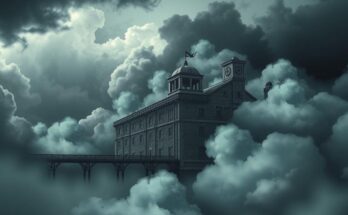Religious leaders in the DRC convened a prayer gathering on February 3 to address the crisis following Goma’s capture by M23 forces. They presented a crisis exit plan to the President, calling for national unity and international pressure against aggressors. The leaders insisted on supporting the Congolese armed forces and warned of continued peaceful protests if decisive actions were not taken by the international community.
On February 3, leaders from various religious backgrounds convened in Kinshasa, organizing a prayer gathering to address the critical situation following the fall of Goma to M23 fighters. The representatives discussed a “crisis exit plan” with the President of the Democratic Republic of the Congo (DRC) in light of the pressing need for national unity amidst ongoing conflict in the eastern region.
During this gathering, Ediba Yamapia, representing the Pentecostal Church, emphasized the urgency of their situation, stating, “The hour is critical. We are a nation of believers… let us turn our worries into a subject of prayer.” The meeting responded to Minister of Justice Constant Mutamba’s call for a day of prayer, aimed at addressing the Rwandan affront and promoting peace.
Leaders from the religious community unanimously condemned the aggressive actions against the DRC, issuing a statement supporting the Congolese armed forces. They urged the international community to move beyond mere condemnations and to consider implementing targeted sanctions against M23 and their Rwandan allies, cautioning that peaceful demonstrations would continue if no action was taken within the next 72 hours.
Simultaneously, leaders from the National Episcopal Conference of Congo (CENCO) and the Church of Christ in Congo (ECC) met with President Félix Tshisekedi, presenting a crisis exit plan focused on enhancing national cohesion. The specific details of the plan were not disclosed, although the leaders expressed optimism following their discussions with the president.
On the same day, CENCO reaffirmed its commitment to the needs of populations affected around Goma, recognizing the unbearable circumstances they face. The Catholic bishops reflected on the necessity for compassion and a thoughtful response to the escalating crisis, assuring the public of their efforts to seek peaceful resolutions to the conflict.
As the situation in Goma remains severe, particularly with the threat of famine, it is critical for all parties involved to prioritize dialogue, unity, and humanitarian assistance for the affected populations, ensuring a collective effort towards restoring peace in the DRC.
Amidst the ongoing conflict in Eastern Democratic Republic of the Congo, Goma has fallen under the control of M23 fighters, escalating tensions in the region. Religious leaders from various denominations have mobilized to address this crisis through prayer gatherings and meetings with government officials to present potential solutions. With national unity being pivotal at this juncture, these leaders are advocating for both spiritual support and tangible actions to restore peace.
The gathering of religious leaders reflects a united front in response to the dire situation in the DRC following the takeover of Goma. Their emphasis on prayer, national cohesion, and international action demonstrates a strategic approach to addressing both the humanitarian and political crises. As they urge action against external aggressors, the call for unity and targeted sanctions highlights a critical moment for the future of peace in the region.
Original Source: international.la-croix.com




